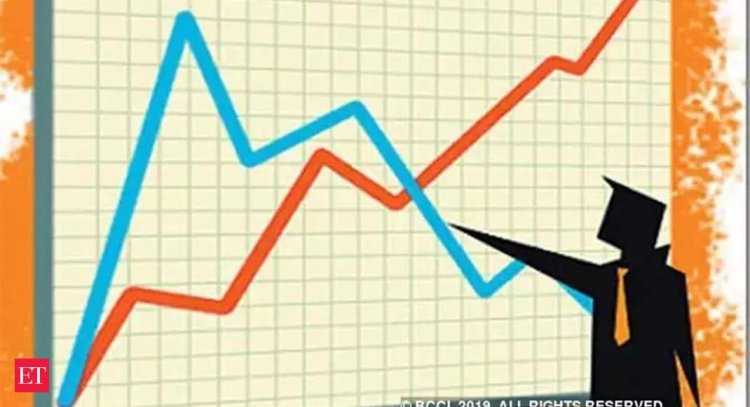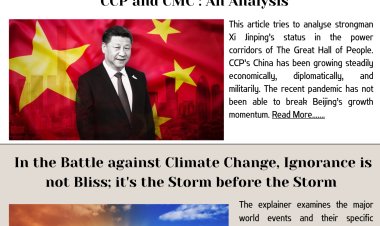Demand and Supply – A Double Whammy?
The following commentary tries to understand the economic regression that India is currently undergoing and talks about the potential economic reforms needed to address the worldwide issue of supply and demand and enhance economic prosperity in the country.

Commentary
By Percival Billimoria
Many 'seat-of-the-pants' critics of the Government point to the huge deficits run up by the USA and other countries to exemplify its failure to redress the economy. But monetarist solutions to low economic growth are flawed, as should be evident to anyone with some grey matter and powers of observation and analysis of historical data. Moreover, Keynesian economics fails to take into account the one fundamental reality – economics is as much about understanding human nature as it is about numbers.
Quite simply, low growth occurs due to low demand. But the "cheques in the mail" is not going to make people spend and increase demand and fuel growth as the monetarists' hope. That's because until there is uncertainty about when the pandemic will abate, the cheques will be encashed and the money put under the mattress. Uncertainty creates instability and insecurity, so while those below the poverty line could undoubtedly do with and must have the support, it is the middle-class spending that fuels growth and the middle class is unlikely to spend while remaining insecure. Mr Sunak would be hard-pressed to explain why the generous unemployment cheques incentivised people to stay at home and take up part-time jobs while refusing to return to work with their pre-pandemic employers. While many in the USA predict hyperinflation due to the unprecedented levels of freshly minted currency in circulation – about 35% by some estimates – Mr Biden runs the considerable risk of depending on those who predict hyperinflation is a thing of the past due to globalisation. If this theory comes unstuck, the dollar will crash faster than someone bungee jumping on Niagra falls. Fortunately, the administration has had the good sense to divert a significant part of its deficit into building infrastructure, which is bound to pay off as and when some semblance of normality returns. But the pork remains at astonishing levels and will also cost the country in the years ahead.
Therefore, it is just that Indian Finance Minister Nirmala Sitharaman did not fall prey to the same malady. However, there is another huge monster problem which she has failed to redress. The credit squeeze is getting intolerable and will choke the living breath out of the Indian economy. Some have labelled it as the lifeblood of economic activity, and the rapid pace at which it is being drained can only leave a pale and weak skeletal gasping for sustenance.
The reader may have noticed that while the monetary policy is supposed to redress demand, the credit policy redresses supply. No sane businessmen will plan to invest till demand levels remain sluggish. But the real drag on growth will be visible when there is a natural growth in demand but no credit to invest in capacity building. The economy requires significant banking sector reforms and privatisation combined with fiscal measures rather than currency printing machines.
This should be a no-brainer. Prudent measures require a focus on investment in capacity and infrastructure rather than free lunches hoping that it will stimulate demand when it does not in times of instability. Even in good times, monetary policy can boost demand to a point, but it will soon become a bubble that will burst. This is a lesson the world should have learnt from the Japanese experience in the eighties and the implosion of the Asian tiger economies. Japan's central bank kept pushing cheap credit, and it came to the point that even people in modest jobs were buying second homes. But when most of the loan portfolio turned bad, that unfortunate country saw very high suicide rates and bankruptcies. Looking back on that experience, it is astonishing that the world has yet to learn that the way to economic prosperity lies in channelling money into productive investments – new technologies, scientific research, capacity augmentation in new-age industry and infrastructure rather than in sending out cheques in the hope of boosting demand for washing machines.
Percival Billimoria is Senior Advocate in India. He is also a chartered accountant by qualification and is a well-regarded arguing counsel. He has represented clients in adversarial matters (litigation and arbitration). He specialises in corporate-commercial matters and is primarily known for setting some of the early jurisprudence in competition law. Percy has represented clients before the Supreme Court of India and the High Court of Delhi, as well as tribunals such as the erstwhile Competition Appellate Tribunal.
Disclaimer: This paper is the author’s individual scholastic contribution and does not necessarily reflect the organisation’s viewpoint.

















